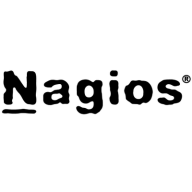

Elastic Security and Nagios Log Server are key players in the log management space. Elastic Security appears to have the upper hand in features and scalability, while Nagios Log Server is favored for its simplicity and ease of use.
Features: Elastic Security offers robust search and analysis capabilities, real-time threat detection, and extensive customization options. It integrates seamlessly with other Elastic Stack components. Nagios Log Server provides straightforward log management with reliable alerting and reporting functions, along with intuitive options suited for smaller setups.
Room for Improvement: Elastic Security users suggest a need for a simpler setup, improved reporting tools, and enhanced user support channels. Configuration flexibility remains a key concern. Nagios Log Server users would like to see improved scalability, better integration with third-party systems, and enhanced user support.
Ease of Deployment and Customer Service: Elastic Security requires more technical expertise for deployment but benefits from comprehensive documentation. User feedback on customer service is mixed. Nagios Log Server is easier to deploy, with fast deployment times and straightforward instructions, offering a quick start for teams with limited technical resources.
Pricing and ROI: Elastic Security has a higher initial setup cost but promises significant ROI due to its comprehensive features and scalability. Nagios Log Server, with its cost-effective approach, is appealingly priced for small to medium businesses. It offers a strong ROI when effectively used in smaller environments.
| Product | Market Share (%) |
|---|---|
| Elastic Security | 2.9% |
| Nagios Log Server | 0.9% |
| Other | 96.2% |


| Company Size | Count |
|---|---|
| Small Business | 40 |
| Midsize Enterprise | 11 |
| Large Enterprise | 15 |
Elastic Security combines the features of a security information and event management (SIEM) system with endpoint protection, allowing organizations to detect, investigate, and respond to threats in real time. This unified approach helps reduce complexity and improve the efficiency of security operations.
Additional offerings and benefits:
Finally, Elastic Security benefits from a global community of users who contribute to its threat intelligence, helping to enhance its detection capabilities. This collaborative approach ensures that the solution remains on the cutting edge of cybersecurity, with up-to-date information on the latest threats and vulnerabilities.
Nagios Enterprises delivers official products, services, and solutions for and around Nagios – the industry standard in enterprise-grade IT infrastructure monitoring. With millions of users worldwide, Nagios is the undisputed champion in the IT monitoring space. Our team of dedicated professionals works to ensure total customer satisfaction with all the services we provide. Our extensive network of partners helps extend Nagios services and solutions to new organizations and markets worldwide to meet a variety of business needs. Nagios Enterprises was founded in 2007 by Ethan Galstad. Ethan created what would later become known as Nagios in 1999, and currently serves as the President of Nagios Enterprises.
We monitor all Log Management reviews to prevent fraudulent reviews and keep review quality high. We do not post reviews by company employees or direct competitors. We validate each review for authenticity via cross-reference with LinkedIn, and personal follow-up with the reviewer when necessary.